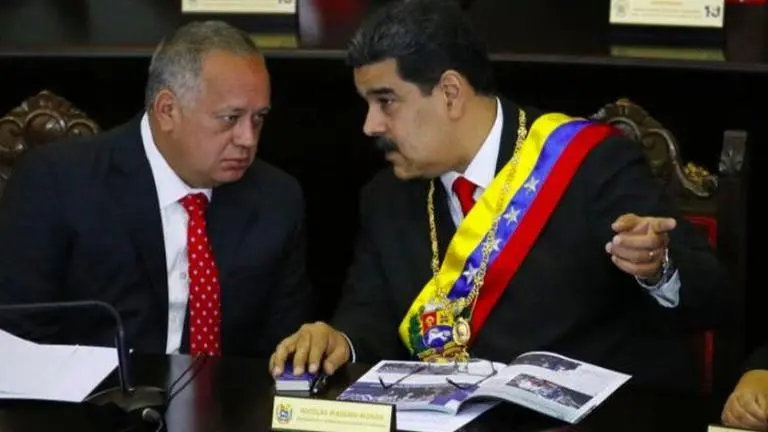Updated 28 November 2022 at 08:23 IST
Biden eases oil sanction on Venezuela as opposition resumes talks
The Bolivarian Republic of Venezuela is now emerging as the alternative to the banned Russian crude supplies that might be exported to Western nations.
- World News
- 3 min read

Biden administration on Saturday, Nov 27 eased the oil sanctions on Venezuela that were imposed by his predecessor ex-Republican President Donald Trump in August 2019 which froze the Venezuelan government assets in the US and banned all transactions with American entities and firms. The move came as the oil prices skyrocketed worldwide due to the ongoing Russia-Ukraine war and Moscow stifling any oil export prospects to the energy-reliant Europe following the Nord Stream pipeline's sabotage as the bloc prepared for cold and harsh winters ahead.
Venezuelan President Nicolás Maduro had earlier signalled that his government was ready to boost oil production if Russian supplies were cut out of the global energy market due to sanctions. The restrictive measures on Russian oil were imposed on the European Union in consultation with the US as a response to Russia's President Vladimir Putin's unprovoked war in Ukraine.
Venezuela, a Russian ally, has had its oil industry under American sanctions in what was viewed as a years-long move to empower the opposition and cripple the government of Maduro. The former Trump administration's sanctions on Venezuelan oil corporations such as Venezuela’s state-owned oil giant Petróleos de Venezuela SA were aimed at choking the proceeds of US crude sales from going to Caracas and emboldening the opposition leader Juan Guaidó.
US Treasury Department had blacklisted Venezuela's PdVSA and its subsidiaries, including the Citgo Petroleum Corp. refining company along the US Gulf Coast in midst of the 2019 political upheaval demanding an expeditious transfer of control of power to the Interim President or a subsequent, democratically elected government.
Advertisement
An emerging alternative
The Bolivarian Republic of Venezuela is now emerging as the alternative to the banned Russian crude supplies that might be exported to Western nations and help alleviate the energy crisis. Maduro and the opposition on Sunday signed a social accord’ brokered by the US, that would enable the UN-administered funds to be used for humanitarian aid to the Venezuelan people. The South American nation kick-started the long-stalled negotiations process to resolve the political turmoil, as the government of Maduro pledged to meet all the commitments listed in the accord.
In return, the US Treasury Department lifted the embargo on the only active US oil company in Venezuela, Chevron, which operates in a joint venture with a Venezuelan state oil company but was dysfunctional due to the US sanctions. With the newly issued US Treasury Department license, the American corporation will now be able to resume pumping oil and regenerate the curtailed revenues. The license allows the company to export any oil produced only to the United States and will remain valid for only six months as the Biden administration accesses the Maduro government's adherence to the newly inked accord.
Advertisement
US Treasury Department said in a statement that it is allowing Chevron to resume its oil production in a “limited” capacity. The California-based Chevron and other US oil firms will be able to perform the basic upkeep of wells as they operate jointly with Venezuelan state-run oil giant PDVSA. The agreement was signed by representatives of President Nicolás Maduro, the opposition, in the presence of a delegation backed by the United States and led by Juan Guaidó in Mexico City.
Published By : Zaini Majeed
Published On: 28 November 2022 at 08:23 IST
